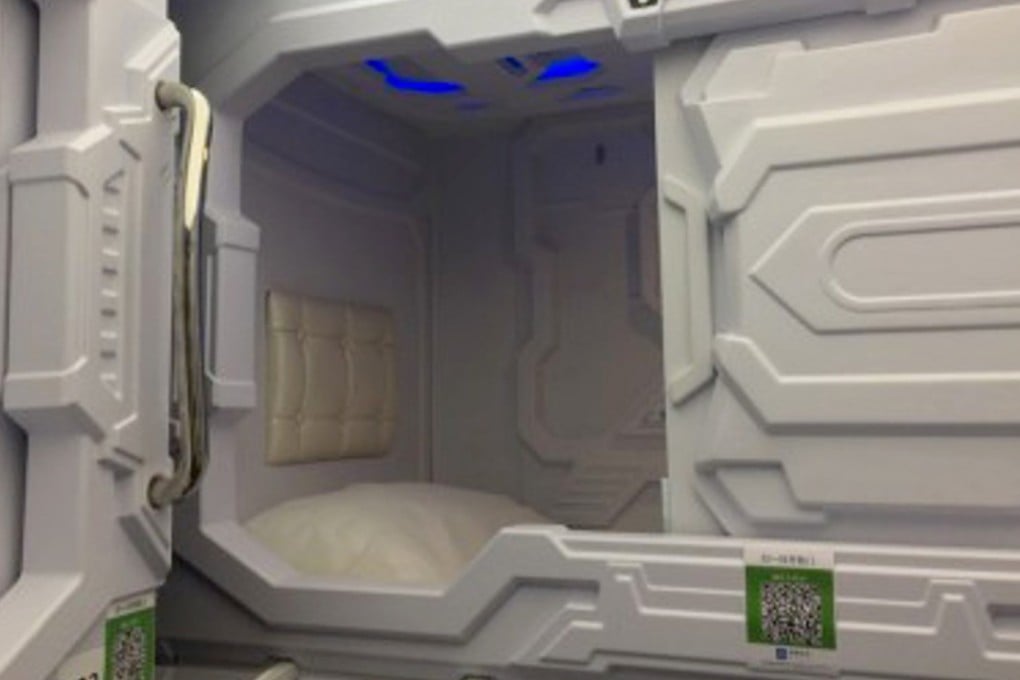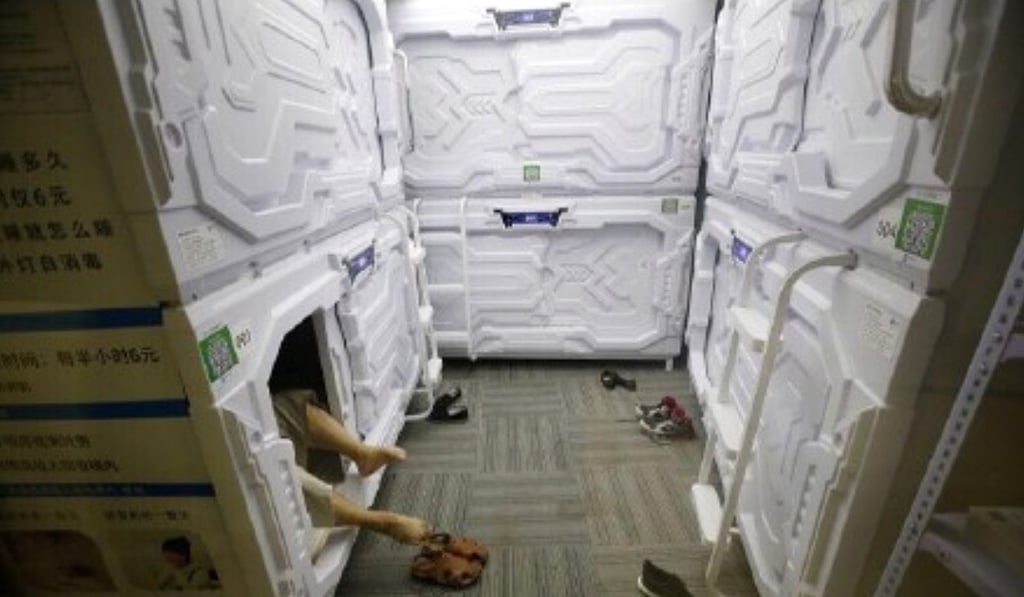Bed-sharing comes to China ... now office workers can check in for a power nap
Capsule hotels at 10 yuan for a half-hour snooze are the latest offering in China’s flourishing sharing economy

From bicycles to brollies, China’s flourishing sharing economy has a new entrant – capsule hotels for office workers looking for a place to snooze.
White sleeping pods that look like they belong on a spacecraft can be hired for 10 yuan (US$1.47) per 30 minutes during the lunchtime peak by scanning a barcode with your smartphone.
The company behind the capsules – which also have recharge facilities, a fan and a reading light – is Beijing-based start-up Xiangshui Space.
It’s opened 15 of the capsule hotels in office buildings, internet cafes and workspaces for start-ups in the city since it launched in mid-May, with two to eight beds in each.
